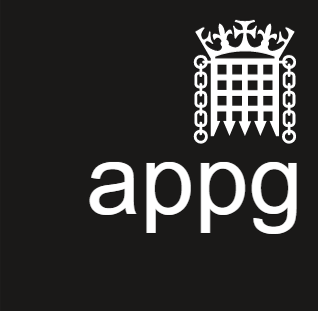Publications and position statements
The APPG on Modern Languages has published a series of documents and position statements making the case for improvements to language policy in the UK.
2025: APPG 2024-25 Yearly Review
The APPG on Modern Languages' review of activities to February 2025.
Download: APPG 2024-25 Yearly Review - PDF (257KB)
2024: APPG Modern Languages Response to the Curriculum & Assessment Review
The APPG on Modern Languages' response to the Curriculum & Assessment Review noted a further decline in the uptake of languages in England’s schools over the last 5 years and recommended that languages should not be regarded only as an academic subject for high achievers, but as a vital skill for the 21st century with proven benefits for learners at all levels.
Download: APPG Modern Languages Response to the Curriculum & Assessment Review - PDF (258KB)
2024: APPG Modern Languages submission to the to the NHS Constitution 10 Year Review
The APPG on Modern Languages' submission to the NHS Constitution 10 Year Review highlights that the NHS Constitution should enshrine the right of patients and the public to be able to understand and to be understood when English is not the first language to assist in their treatment and care.
Download: APPG Modern Languages Submission to the NHS Constitution 10 Year Review - PDF (128KB)
2024: The APPG on Modern Languages calls for an urgent plan of action to safeguard accessibility to international visits and exchanges in all schools
Following its meeting on the decline in international visits and exchanges in the school sector, the APPG called on the Government to intervene urgently to address a series of issues identified as impeding the sustainability of international experiences in schools and colleges.
Download: APPG on Modern Languages calls for an urgent plan of action to safeguard accessibility to international visits and exchanges in all schools - PDF (315KB)
2023: APPG Modern Languages submission to the Covid-19 Inquiry
The APPG on Modern Languages' submission to the Covid-19 Inquiry highlights a series of issues relating to languages and communication in the fields of health, education, justice, and international relations, with relevance to Modules 1, 3 and 5 of the Inquiry (Module 1: Resilience and preparedness; Module 3: Impact of Covid-19 on healthcare systems; and Module 5: Government procurement).
Download: APPG Modern Languages Submission to the Covid-19 Inquiry - PDF (450KB)
The APPG's submission was based on a wide range of evidence, stakeholder input and resources. Please contact the APPG secretariat if you want to request access to the Annexes.
2019: National Recovery Programme for Languages
The National Recovery Programme for Languages sets out strategic objectives across five sectors, with a series of goals for each:
- Schools should ensure all young people learn a language from ages five to 18 and provide a variety of forms of accreditation
- Colleges and universities should protect and expand language courses to reverse closures of degree courses
- Business should invest in language and cultural skills in the workforce to boost GDP and export growth
- Government should take a strategic lead on this question, perform an audit of language skills in the civil service and rectify the absence of language skills in the Export and Industrial strategies
- Society should recognise language skills as achievable, beneficial and fun to learn.
The All-Party Parliamentary Group on Modern Languages calls on Government, civil society and all stakeholders to act now to reverse this national crisis. The National Recovery Programme is proposed as an overarching framework of strategic objectives against which specific policies and actions can be mapped and implemented by the professionals and practitioners with the detailed knowledge and responsibility to achieve a step change in the UK’s languages capability.
Visit the Recovery Programme website (includes press release and document for download).
2016: Brexit and Languages
Brexit and Languages is a one-page checklist under the following four essential language-specific objectives of the Brexit process:
- Guaranteeing residency status for EU nationals already living in the UK and safeguarding future recruitment of EU citizens to address the shortage of language skills
- Continuing full UK participation in the Erasmus+ programme (noting the examples of Norway and Switzerland)
- Committing to legislate to replicate the rights enshrined in the 2010 European Directive on the Right to Interpretation and Translation in Criminal Proceedings
- A post-Brexit plan in education (from primary school to post-graduate research, including apprenticeships), business and the civil service, with specific actions to ensure the UK produces sufficient linguists to meet its future requirements as a leader in global free trade and on the international stage
Visit the Brexit and Languages website (includes press release and document for download).
2014: Manifesto for Languages
The APPG on Modern Languages published its Manfesto for Languages on 14 July 2014, in order to tackle the “need for a national recovery programme”. The group called for all political parties to make a general election manifesto commitment to improve the nation’s linguistic skills base.
The Manifesto was supported by over 50 leading businesses, organisations and universities, including HSBC, UBS, the British Chambers of Commerce, the British Academy, the British Council, the ASCL and the NAHT – and by over 70 leaders and academics.
Visit the Manifesto for Languages webpage (includes press release and document for download)
Return to APPG Home

